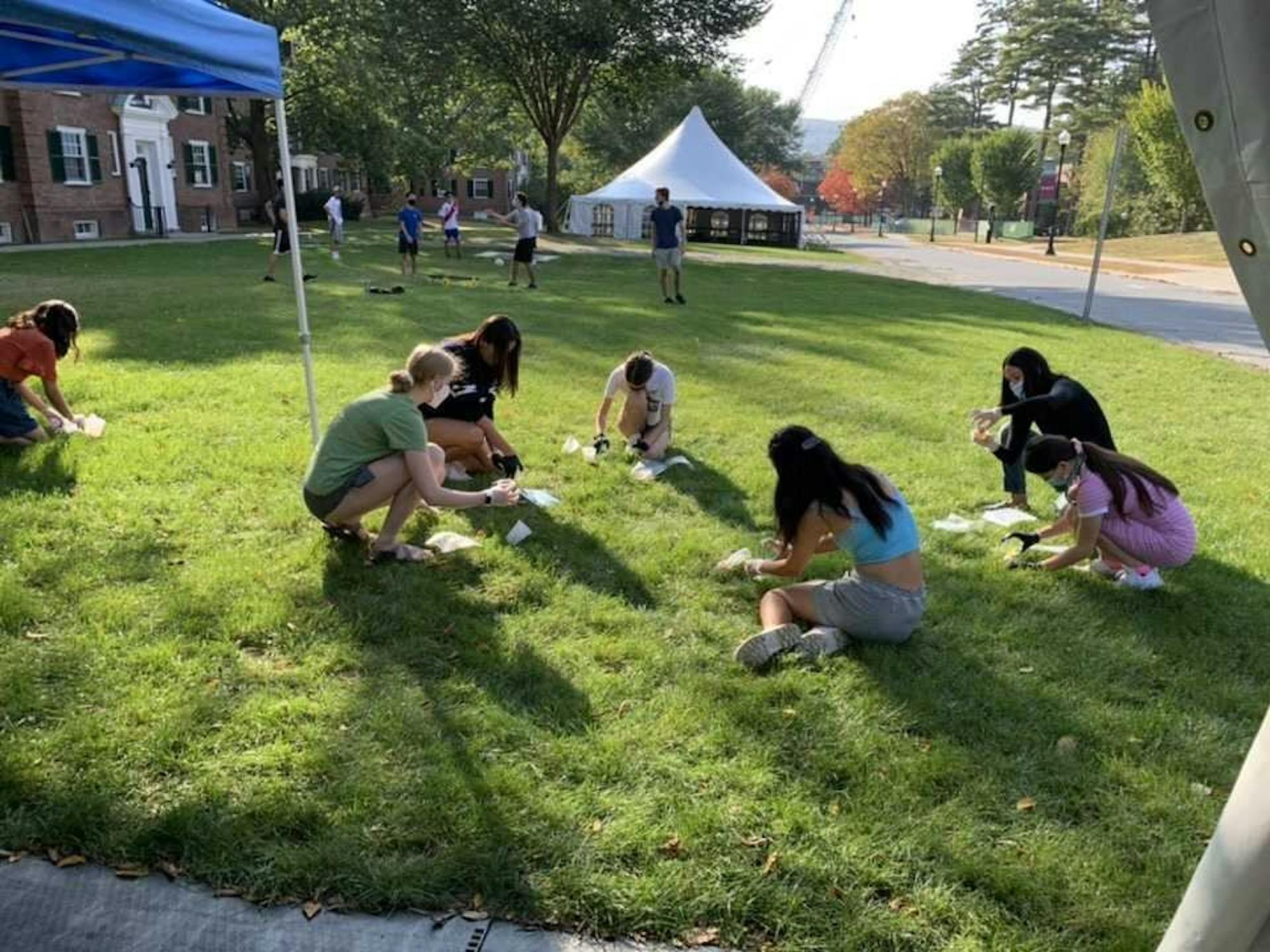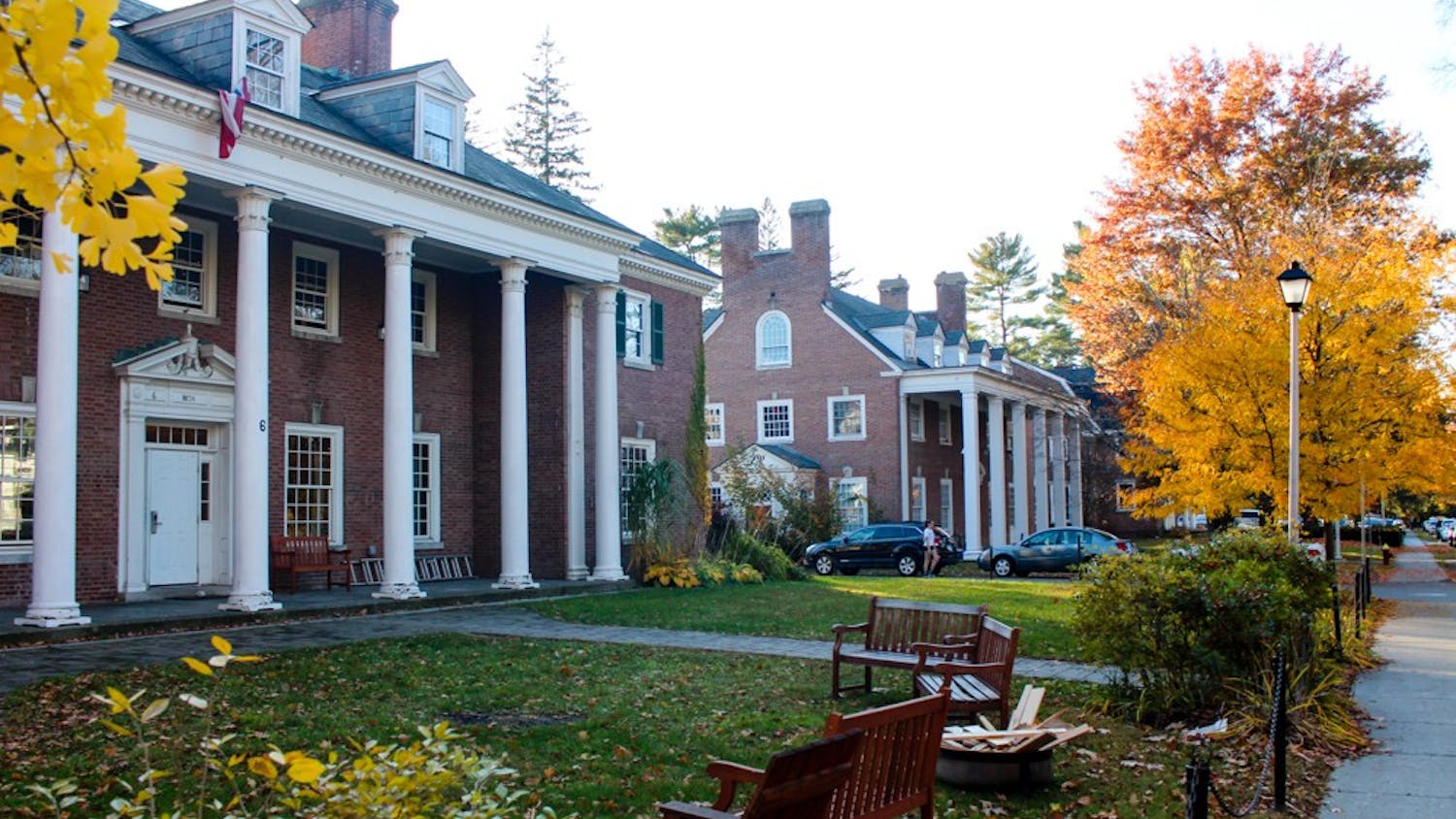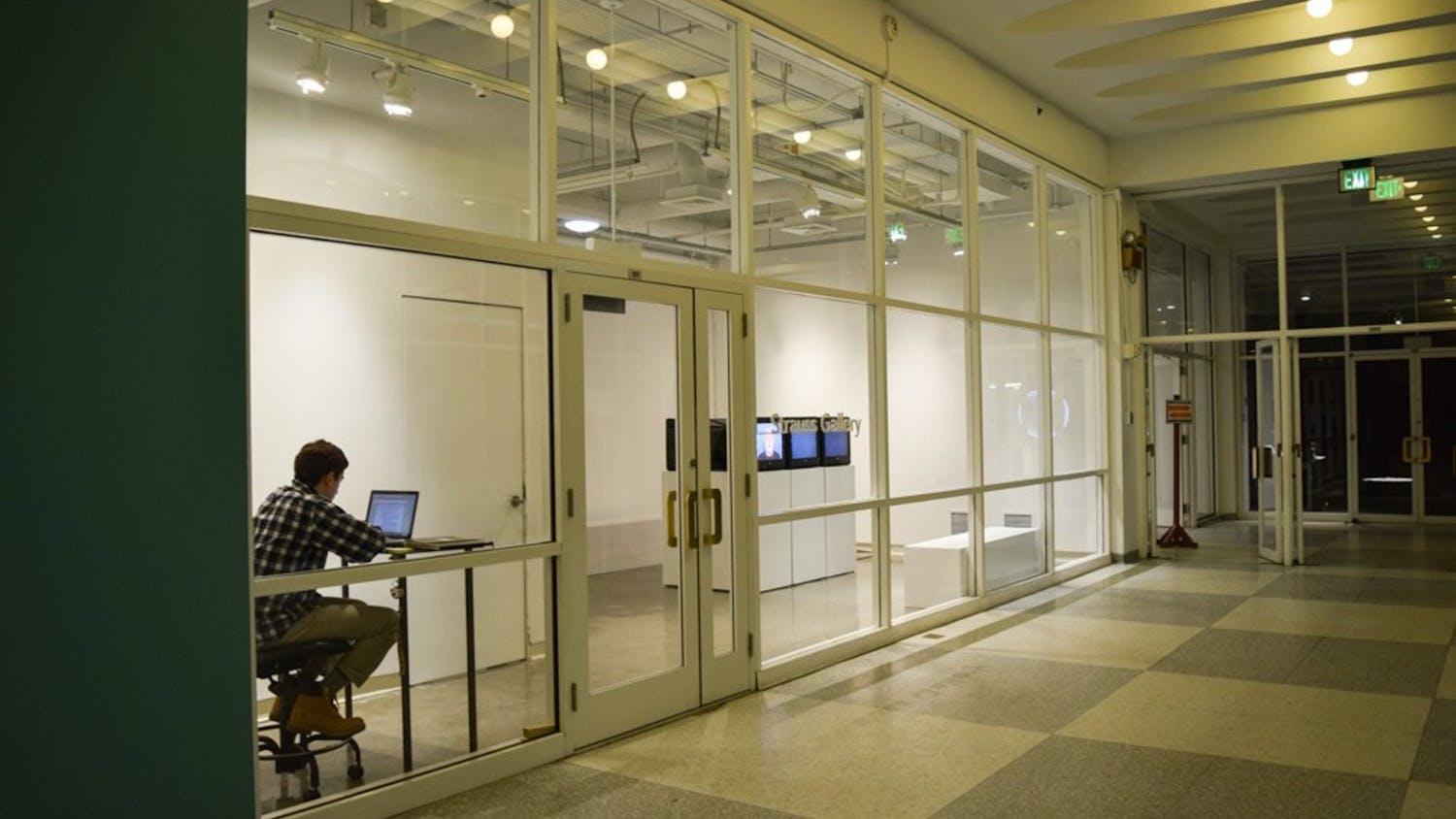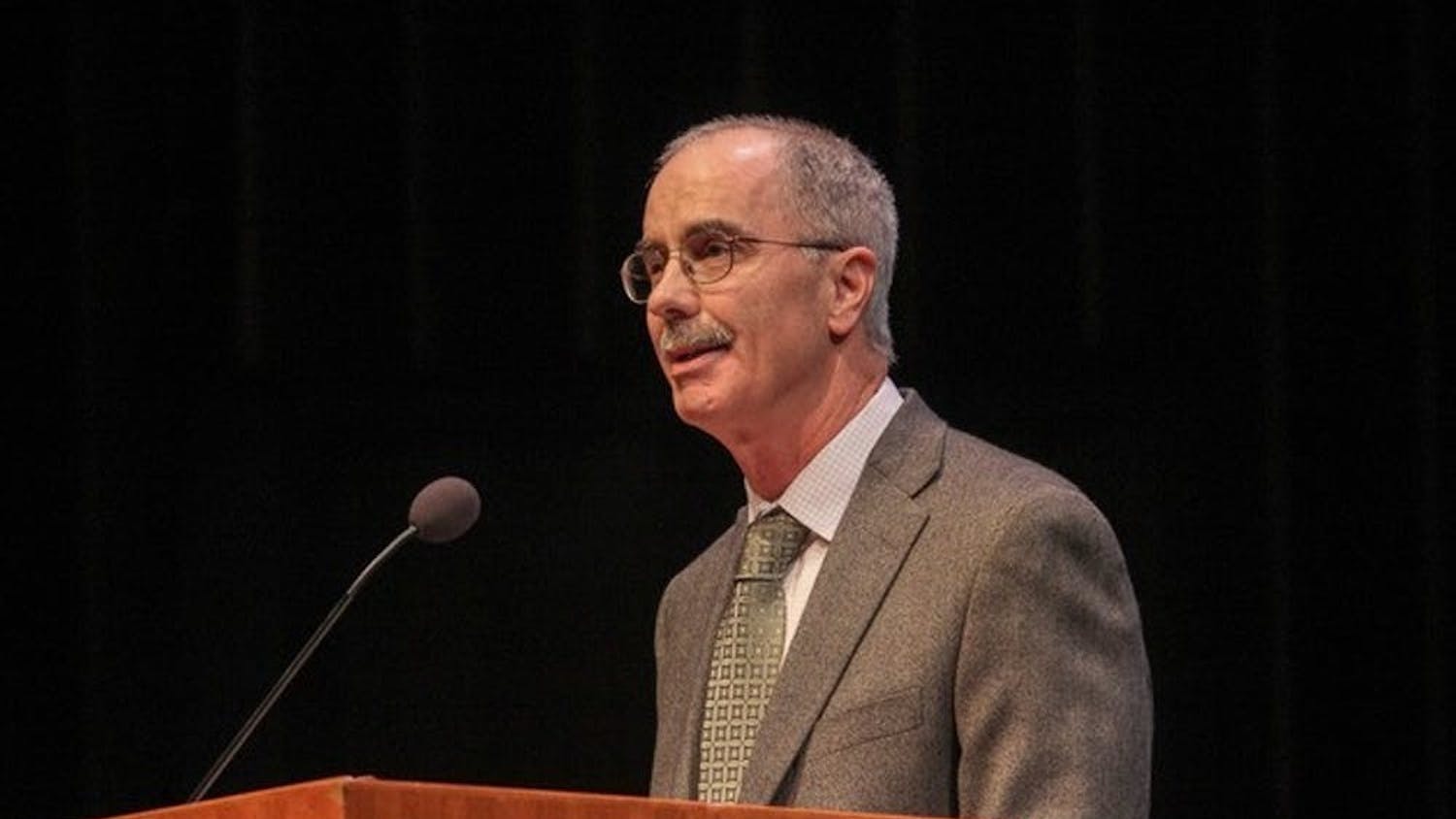From a 250-player game of virtual bingo to socially distanced fall hikes, Programming Board, Collis After Dark, house communities and other student organizations have designed in-person and virtual events to keep students both on and off campus in touch with the community.
While student programming staples like “Roller Rink Rewind” and “Late Night Breakfast” won’t make an appearance this term due to COVID-19 regulations, many virtual and in-person events have still attracted significant student turnout, according to Programming Board director Meg Targett ’21.
However, in-person events are open only to students living on campus, even though all students taking classes this term have paid an $104 student activity fee to finance the events. The fee, which is collected by the College and allocated to nine major student organizations — including Programming Board, the Special Programs and Events Committee and the Council on Student Organizations — based on percentages determined by the Undergraduate Finance Committee. Collis director of student involvement Anna Hall said that all students taking classes this term were charged the student activity fee “to allow organizations to continue to provide both virtual and in-person activities,” but did not further explain why off-campus students are still required to pay the fee. Hall also confirmed that the fee increased from previous years, proportional to this year’s tuition increase.
In an email statement to The Dartmouth, Hall added that the Undergraduate Finance Committee usually determines the allocation of student activity fee funds on a yearly basis , but this year it will be decided termly due to uncertainty amid COVID-19. She said that funding is allocated based on a variety of factors, including “available funds and the needs/plans of organizations.”
Targett said that Programming Board’s budget relative to the last two years is “a little smaller.” However, since some of the organization’s more expensive programs — like Fallapalooza, Programming Board’s annual fall concert — are impossible given the College’s COVID-19 policies, she believes the “expenses have also decreased relative to the budget size.”
Targett said that the organization is “really focusing on creating a mix of events that can involve the whole student body,” including students on campus as well as those who are remote. Programming Board’s first event of the fall was “Big Prize Bingo,” which was conducted over Zoom and attracted 250 people, according to Targett. Programming Board also hosted an on-campus tie-dyeing masks event, which Targett said had an attendance of over 200 people, who were split into groups of 20 or fewer at a time.
House communities have also been putting on in-person and virtual events. Uyen Dang ’21, South House executive council co-chair, said that South House recently put on a fall photo shoot for students to take photos in the fall foliage. Members of the council also plan on giving out sweatshirts and masks to South House freshmen.
Zoom fatigue has made virtual event attendance challenging, Dang said, since “no one really wants to spend more time on Zoom than they have to.” Additionally, she said that while ’24s are engaging with the house communities, “the biggest difficulty” has been engaging upperclassmen since so many are involved with the Greek system and therefore may not feel they need a platform for community engagement through house community events.
Collis After Dark, which operates under the Collis Center for Student Involvement, waited until the end of the two-week arrival isolation period for on-campus students to start organizing indoor and in-person activities, according to Collis After Dark intern Jesse Montoya ’22. She added that Collis After Dark held its first in-person event, which featured canvas painting, on Oct. 3. The event was held in two hour-long sessions with a 25-person limit per session.
Montoya noted that while Collis After Dark events have mostly drawn freshmen in past years, the activities so far this year have attracted “a really broad range of students, from freshmen to seniors.”
Montoya said that to follow public health guidelines, events now need to minimize contact between students, meaning that students can no longer share equipment or eat food indoors as they could in the past. In addition, Montoya said Collis After Dark is more careful about the timing of its activities because organizers need to sanitize surfaces after one session ends.
“It’s difficult,” Montoya said. “There are a lot of little details in the guidelines that you need to go by.”
She added that due to the limitation on attendance, Collis After Dark has not been able to hold large-scale events, such as roller skating. This has made budgeting for events “tricky” because this year’s smaller-scale events require more individual equipment to ensure that events comply with COVID-19 guidelines.
This term, in addition to advertising via Instagram and campus emails, student organizations have been posting information about their activities through the Dartmouth Engage platform, where students can look for activities they are interested in and sign up for them in advance.
Stephanie Damish ’24 said that sometimes events on the Engage website fill up quickly, and she wishes there were more sessions offered. However, she said that she has enjoyed the events she has attended, like the Programming Board tie-dye mask event and Collis After Dark’s canvas painting, because they allowed her to meet her peers and upperclassmen and become more connected to the Dartmouth community.
“I’d say [the events] helped me bond with people,” Damish said. “Also I felt more connected to campus, and I got to meet a few people that I would not have run into otherwise.”
Dawn Lim ’24, who went to the Collis After Dark painting event with a friend, said the activity was “kind of therapeutic” and a “nice change of pace” from her academic work.
“I got to really bond with my friend,” Lim said. “It was a bit hard because of the social distancing, but at least it was a very nice, quiet atmosphere and the painting also really helped.”
Correction appended (Oct. 13, 2020): A previous version of this article incorrectly stated that the student activity fee is collected by the Collis Center and distributed equally among nine major student organizations. The article has been updated to reflect that the fee is collected by the College and allocated to the nine organizations based on percentages determined by the Undergraduate Finance Committee.





